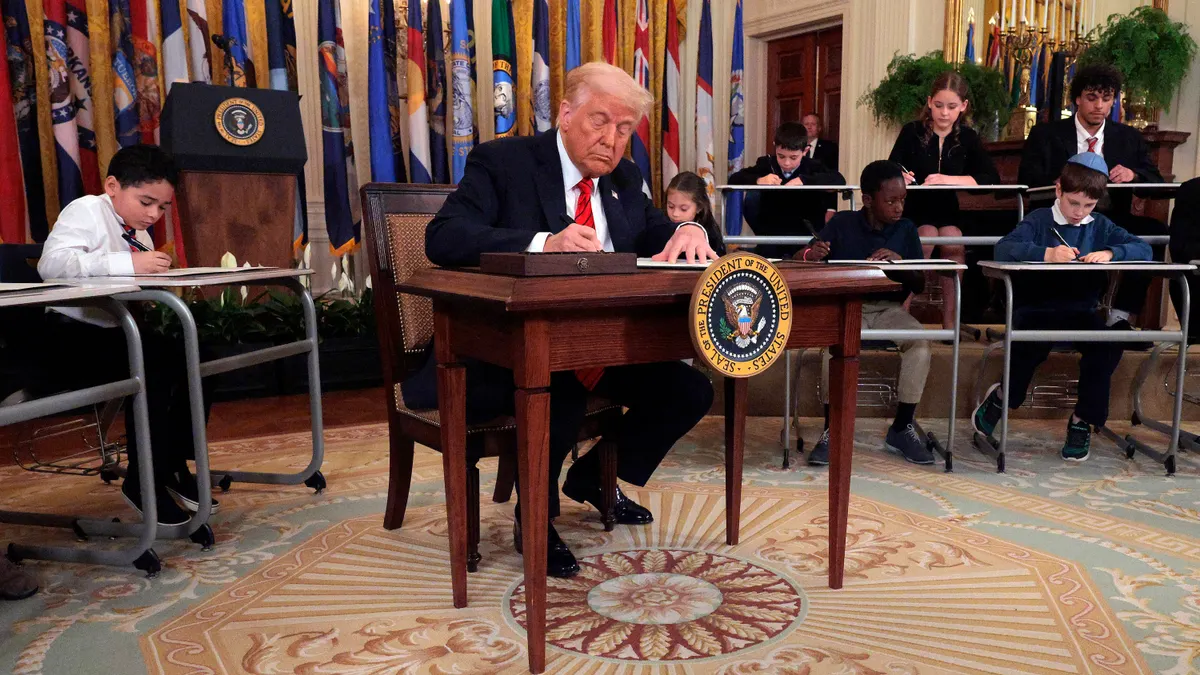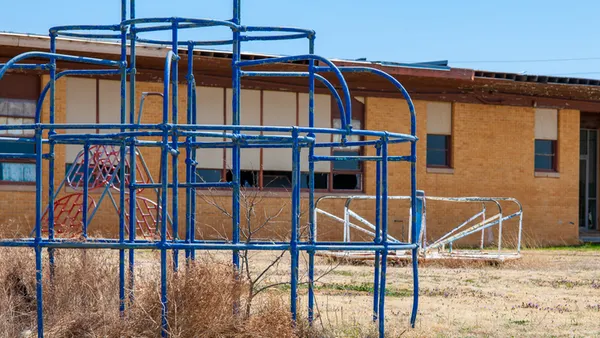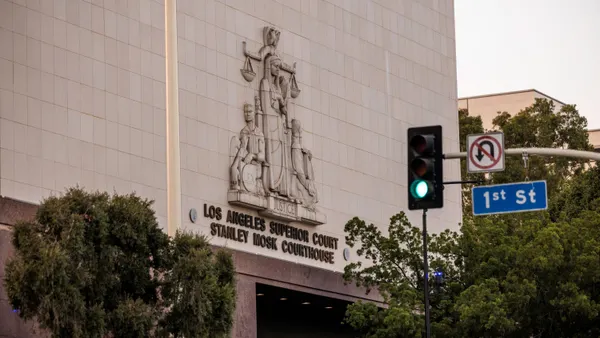A group of parents and students are asking the courts to block U.S. Department of Education civil rights investigation and enforcement policies that they say are — under the Trump administration — allowing racial harassment, restraint and seclusion of students with disabilities, and other kinds of harassment and discrimination to go unchecked.
"A key role of the Department of Education is to ensure civil rights protections for all students including children of color and students with disabilities," said Derwyn Bunton, chief legal officer at Southern Poverty Law Center, in a statement Monday.
SPLC, the National Center for Youth Law and the Council of Parent Attorneys and Advocates originally filed suit on behalf of the students and parents in the U.S. District Court for the District of Columbia in March. The lawsuit asked for a permanent reversal of the department's cuts to its Office for Civil Rights.
On Monday, the groups filed a motion for a preliminary injunction against OCR over its reduced enforcement capacity, asking that it be temporarily restored while the lawsuit is pending. The motion cites the department's decision to cut OCR by half and says the agency has "functionally ended the processing of scores of complaints."
The motion asks the court "to restore the investigation and enforcement capacity of OCR that would enable OCR to process complaints promptly and equitably," and to require the department to submit a restoration plan for the civil rights office.
Shortly after the inauguration of President Donald Trump in January, OCR reportedly stopped processing thousands of public complaints related to disability rights and sexual and racial harassment. It also stopped updating its investigations database, which for years has been publicly available and updated weekly for government transparency.
After reports of the internal pause surfaced, the administration reportedly restarted some of its investigations related only to disability rights on Feb. 20, according to court documents in the SPLC lawsuit.
Since then, the majority of investigations publicized by the department have been related to undoing LGBTQ+-friendly policies in schools, such as allowing gender support plans and transgender student participation on sports teams that align with their gender identities. Many of those investigations have been directed, meaning the department launched them without any public complaint.
"Even as OCR generally stopped investigating complaints from the public based on race or sex discrimination, it cherry-picked and, on its own initiative, began targeted investigations into purported discrimination against white and cisgender students," said the lawsuit, which was amended in April to include more petitioners.
The Education Department in April announced a Title IX Special Investigations Team, tasking the U.S. Department of Justice to help investigate and enforce the separation of transgender students from girls' and women's athletic teams and spaces in schools and colleges.
Prior to that, in February, it announced an "End DEI" portal, rerouting public complaints usually filed with OCR to a new mechanism designed for parents, students, teachers and others to report "illegal discriminatory practices" such as diversity, equity and inclusivity efforts meant to make schools more welcoming for students of color, students with disabilities and LGBTQ+ students.
The portal has since been blocked by the courts as part of a lawsuit targeting the department's broader anti-DEI efforts, including its requirement for states and districts to certify they are not incorporating DEI into their practices.
That certification requirement was blocked on April 24 as part of a lawsuit brought by the National Association for the Advancement of Colored People. That decision came from the same Washington, D.C., district court where Monday's motion for preliminary injunction and the March lawsuit against OCR's policies were filed.
The court's decision in the NAACP case led to the Education Department retracting, for now, its certification requirement a few days later.






 Dive Awards
Dive Awards







